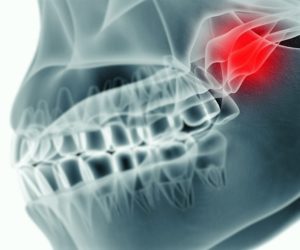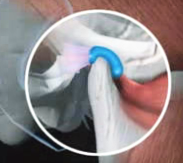
Temporomandibular disorder, known as TMD, is a cycle of pain, muscle spasms, and joint imbalance where the jaw meets the skull. The lower jaw meets the skull at the temporomandibular joint, known as the TMJ. This joint connects the temporal bone of the skull with the mandible bone of the jaw. Cushioning these two bones is a thin disc of cartilage. Five muscles support the joint.
Symptoms of TMD

When the balance of these bones, cartilage, and muscles is lost, it can cause:
- Headaches
- Earaches
- Difficulty opening and closing your mouth
- A clicking or popping in the joint
- A dull aching pain around the ear that spreads into the face
- Sore or painful jaw muscles

